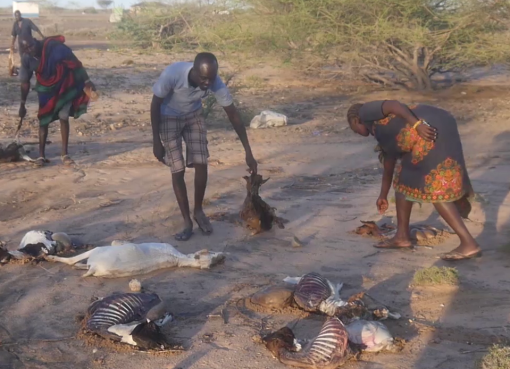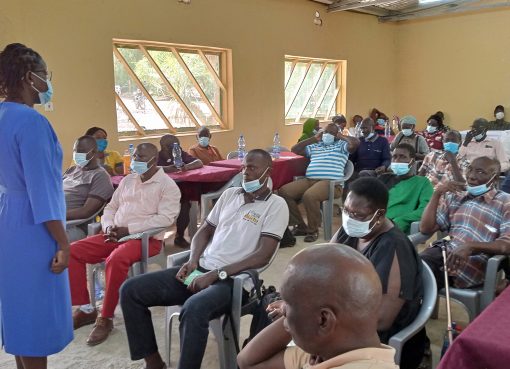The establishment of Kakong’u flood based farms is part of the Turkana County Government long term strategy to address food insecurity through utilisation of floodwaters, County Executive Committee (CEC) member for Agriculture, Chris Aletia has said.
The 300 acre farm at Kakong’u in Lobokat Ward is set to directly benefit 300 households.
Speaking in Lodwar on Tuesday, during a food security stakeholders meeting, Aletia said that the County Government is embracing modernizing farming through partnership not only for crops but also for pasture production.
He said that the Ministry of Agriculture had in the past sent its staff to learn and benchmark from several institutions, including Israel and Mekelle University in Ethiopia to acquire knowledge that can be used in achieving the County’s agenda on food security.
Aletia briefed the partners on steps that the government had taken on diversification because of the changing climatic conditions.
The steps he cited include establishment of Agriculture Policy that is expected to provide a roadmap on Agro-pastrolism among other areas on food security policies.
While acknowledging the great support that partners provide towards implementation of government food security agenda through collaboration on livelihoods projects, the CEC said that Turkana was the first among Arid and Semi-Arid Land (ASAL) Counties to initiate the farming system at Kolioro in Loima Sub-county.
The Agriculture Deputy Director, Paul Lokone said that the flood based farming increases ground water recharge, saying it was best in rehabilitation of range lands.
While citing Kolioro Irrigation Scheme as a success story of flood based farming in ASAL areas , the Head of Mekelle University delegation, Professor EyasuYasew , said that preliminary research on the farm has shown its potential of producing surplus food through the technology.
Through partnership with German Development Agency -GIZ, five staff from the County Government will travel to Mekelle University in Ethiopia to be trained on implementation of flood based farming.
Present were representatives from Japan International Cooperation Agency, Africare, Child fund, Agency for Pastoralists Development, World Food programme, Kenya Forest Research Institute and Livestock Management systems among others.
By Peter Gitonga




